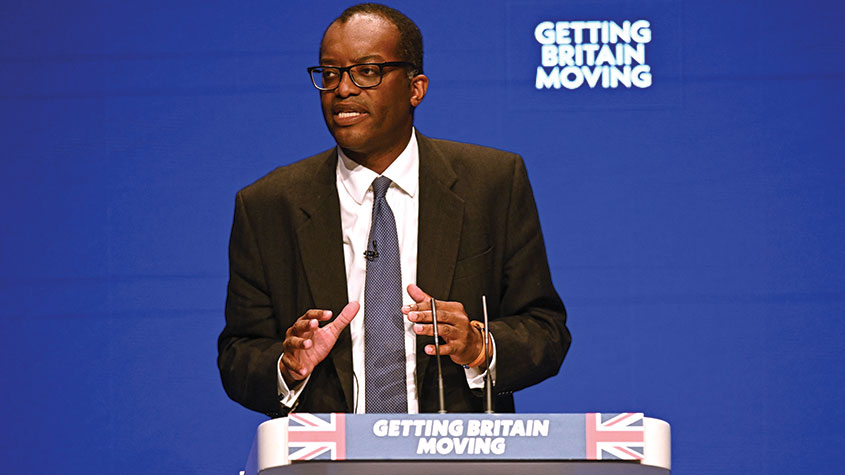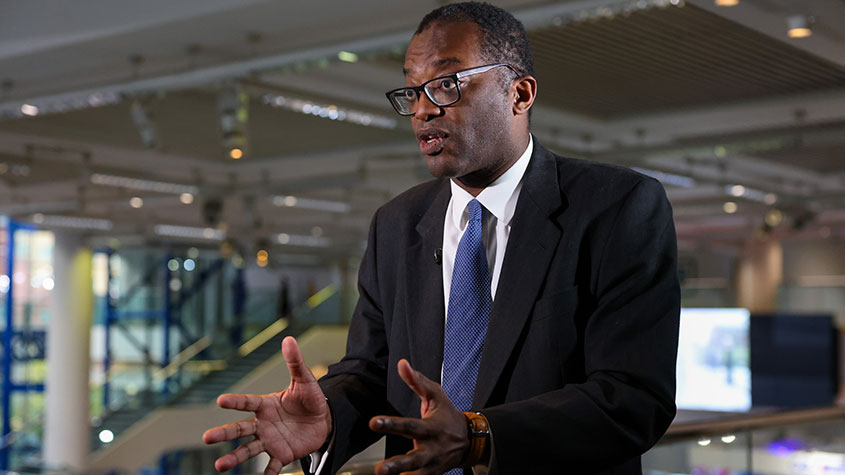Cutting the cost of saving
Investors have long waited for politicians to cut the cost of saving, says Merryn Somerset Webb. Now the market is doing that itself.

Get the latest financial news, insights and expert analysis from our award-winning MoneyWeek team, to help you understand what really matters when it comes to your finances.
You are now subscribed
Your newsletter sign-up was successful
Want to add more newsletters?

Twice daily
MoneyWeek
Get the latest financial news, insights and expert analysis from our award-winning MoneyWeek team, to help you understand what really matters when it comes to your finances.

Four times a week
Look After My Bills
Sign up to our free money-saving newsletter, filled with the latest news and expert advice to help you find the best tips and deals for managing your bills. Start saving today!
There is something of a consensus in the press that the Labour manifesto has opened up "clear blue water" between the Labour and Conservative parties. The UK voter, says absolutely everyone, has a real choice to make here. That's true but only, I suspect, to a degree. Jeremy Corbyn's manifesto is interventionist, extremely expensive and a bit silly. But you could say that of almost all manifestos. And the truth is that over the last few months all UK politics has shifted firmly towards interventionism.
Corbyn clearly doesn't trust the market: he would like to nationalise everything in sight. But Theresa May doesn't trust it much either: she often says that she is prepared to step in when the market "isn't working" her plan to cap utility bills shows that she is no less prepared to force state control on industries than her rival. They've identified similar villains in the last few months as well.
Corbyn's pretty down on companies: under him, they get to pay lots more tax. But May reckons they can carry a bit more of a burden too: witness her plans for the extension of workers' rights. Corbyn will tax companies up front to finance everything from whopping spending on the NHS to social care. May won't be the middle man for the cash, but by asking companies to offer workers long periods off to look after relatives for example, she's shifting the burden of social care in the same direction.
MoneyWeek
Subscribe to MoneyWeek today and get your first six magazine issues absolutely FREE

Sign up to Money Morning
Don't miss the latest investment and personal finances news, market analysis, plus money-saving tips with our free twice-daily newsletter
Don't miss the latest investment and personal finances news, market analysis, plus money-saving tips with our free twice-daily newsletter
I've written here before about our expectation that the next government will be endlessly interfering. Voters clearly want to see a newly powerful state acting to make the unelected-but-powerful behave better hence the talk of worker representatives on boards (May wants one non-executive director on each board to be a workers' champion). Witness also the opening salvos against the big tech firms and the price-cap chat. Like it or not, there is much more of this to come. The combination of Brexit and May seems unlikely to give us the small-state, low-tax Britain we hanker after.
There is, however, some good news. We have wondered previously if May might have a go at capping fees in the financial industry, too after all, the regular super-profits made in fund management tell us the market isn't working here (competition should push fees down). What better way to make everyone richer than to cut the cost of saving? But this might be starting to take care of itself.
This week saw Vanguard, the leader in low-cost investing, launch an online service in the UK. Use it and you will pay an annual administration charge of 0.15% a year on an individual savings account. Hargreaves Lansdown, the UK's biggest retail broker, charges 0.45%. There should be a glorious price war ahead one that shows the market working so well there is no need for intervention. Fingers crossed.
Get the latest financial news, insights and expert analysis from our award-winning MoneyWeek team, to help you understand what really matters when it comes to your finances.

-
 Can US small caps survive the software selloff?
Can US small caps survive the software selloff?US stocks have made their worst start to a year since 1995 relative to a global benchmark. But experts think some sectors of the market are still worth buying.
-
 Review: Eliamos Villas Hotel & Spa – revel in the quiet madness of Kefalonia
Review: Eliamos Villas Hotel & Spa – revel in the quiet madness of KefaloniaTravel Eliamos Villas Hotel & Spa on the Greek island of Kefalonia is a restful sanctuary for the mind, body and soul
-
 Was Margaret Thatcher great for Britain?
Was Margaret Thatcher great for Britain?The 'Iron Lady’ would be celebrating her 100th birthday this month. Margaret Thatcher rose to power in 1979 as the first ever female prime minister and was one of the most controversial leaders in history, but how did her policies shape today’s finances?
-
 It’s been 16 years, but the UK economy finally has a chance
It’s been 16 years, but the UK economy finally has a chanceOpinion The UK economy has been dealing with one crisis after another since 2007. Policymakers now have a chance to fix some of the underlying problems holding back growth.
-
 The “plan for growth”: what Truss and Kwarteng got right
The “plan for growth”: what Truss and Kwarteng got rightOpinion The Tories’ “plan for growth” has got off to a bad start, but their reforms can still transform Britain
-
 Kwasi Kwarteng U-turns on top tax rate decision
Kwasi Kwarteng U-turns on top tax rate decisionNews Kwasi Kwarteng has U-turned on his top tax rate reduction announced in his mini-Budget at the end of September.
-
 Inflation may be slipping but there is still plenty of misery ahead
Inflation may be slipping but there is still plenty of misery aheadEditor's letter Inflation may be a little lower than last month as the prices of petrol and diesel fall back, but it remains structural and long-term, says Merryn Somerset Webb. And there are no painless solutions.
-
 Beat the cost of living crisis – go on holiday
Beat the cost of living crisis – go on holidayEditor's letter As inflation rages, energy bills soar and the pound tanks, what’s a good way to save money this winter? Go on holiday, says Merryn Somerset Webb.
-
 How to tackle rising inflation and falling stockmarkets
How to tackle rising inflation and falling stockmarketsEditor's letter Inflation is rising around the world. Even though inflation is widely expected to return to around 3.5% next year, it is still wreaking havoc. Merryn Somerset-Webb explains what to do about it.
-
 How capitalism has been undermined by poor governance
How capitalism has been undermined by poor governanceEditor's letter Capitalism’s “ruthless efficiency” has been undermined by poor governance, a lack of competition and central banks’ over-enthusiastic money printing, says Andrew Van Sickle.